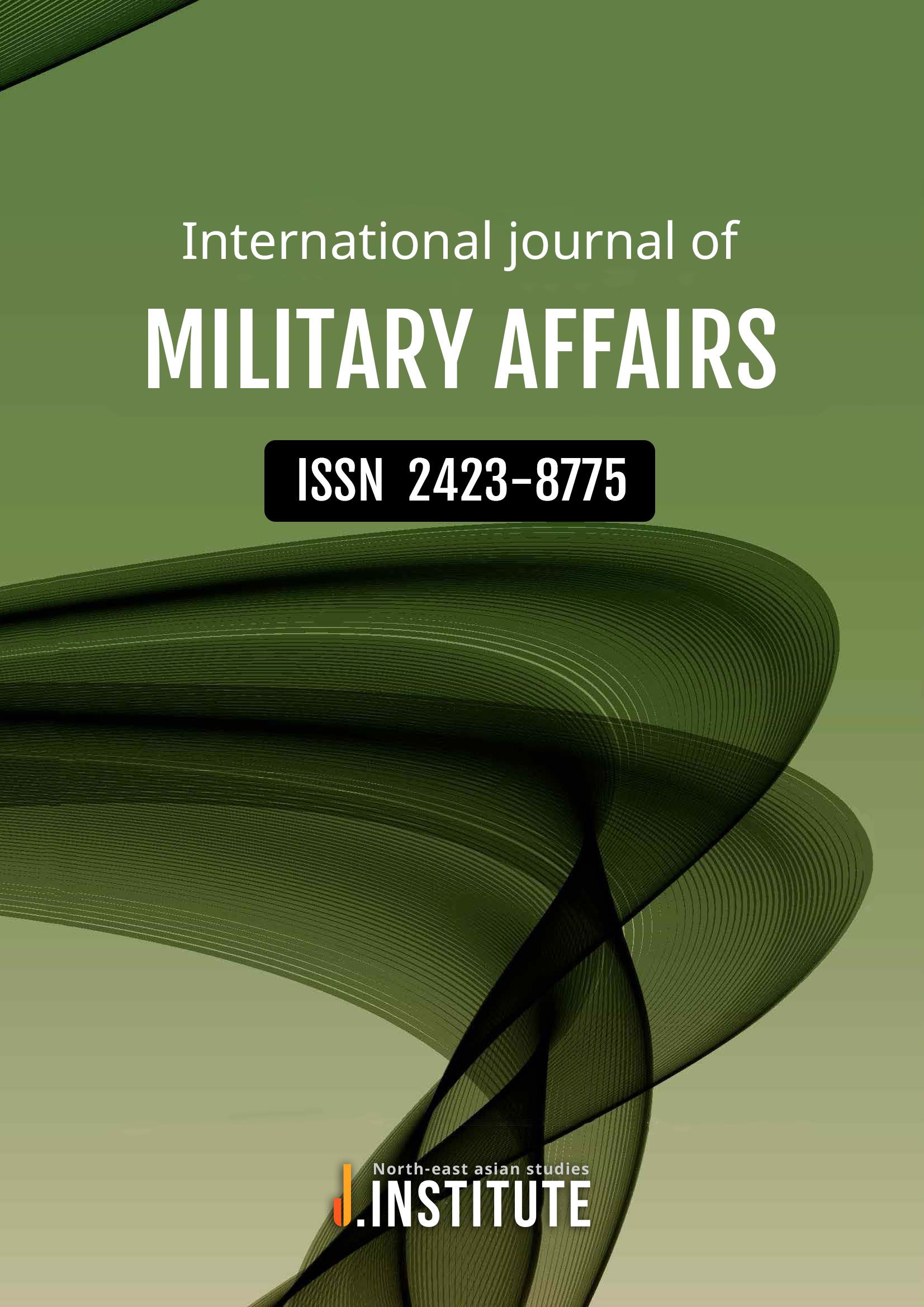- All
- Vol.1 (No.1) 2016
- Vol.1 (No.2) 2016
- Vol.2 (No.1) 2017
- Vol.2 (No.2) 2017
- Vol.3 (No.1) 2018
- Vol.3 (No.2) 2018
- Vol.4 (No.1) 2019
- Vol.4 (No.2) 2019
- Vol.5 (No.1) 2020
- Vol.5 (No.2) 2020
- Vol.6 (No.1) 2021
- Vol.6 (No.2) 2021
- Vol.6 (No.3) 2021
- Vol.6 (No.4) 2021
- Vol.7 (No.1) 2022
- Vol.7 (No.2) 2022
- Vol.8 (No.0) 2023
- Vol.9 (No.0) 2024
- Vol.10 (No.0) 2025
-
Purpose: This study aims to examine the international legal discussions surrounding AI-based autonomous weapon systems. By doing so, it seeks to review the regulations and control measures of the international community regarding the development and deployment of AWS and explore ways to ensure the military utility, ethical, and legal justification of AWS development for our military. Method: This study aims to review the trends and discussions of the international community and to confirm the principles of international humanitarian law and autonomous weapons based on this. The research method is to review the existing research literature, prior research, and existing discussion studies of international conferences, and based on this, to derive the direction the international community should take. Results: International discussions, including those by the United Nations, have focused on the compliance and applicability of international law and international humanitarian law (IHL) principles to autonomous weapon systems. Issues discussed include Martens Clause, the Additional Protocols to the Geneva Conventions, and principles of distinction, proportionality, and precaution under IHL. Autonomous weapon systems must be designed and manufactured to comply with the principle of distinction, and processes enabling human intervention to immediately halt operations in case of violations should be established. Conclusion: It is anticipated that more precise and IHL-compliant autonomous weapon systems will be developed in the future. Article 36 of the Additional Protocol I to the Geneva Conventions stipulates the legal obligation of contracting parties to review the research, development, and use of new weapons, means, and methods of warfare to prevent excessive injury and unnecessary suffering.Keyword:Autonomous Lethal Weapon Systems, Artificial Intelligence, International Humanitarian Law, Military Operations, Future Warfare
-
Purpose: Northeast Asia is experiencing increasing military tensions and diplomatic turmoil due to the Russia-North Korea military alliance and the US-China hegemony struggle. Various issues such as territorial disputes, historical conflicts, economic uncertainty, and cyber-attacks are intertwined in the region, which shows the lack of trust and cooperation among Northeast Asian countries. Various threats exist, such as North Korea’s refugee problem and human rights abuses in China, which have a negative impact on regional stability. Therefore, this study aims to explore the perception of various threats from neighboring countries in the midst of geopolitically uncertain security in Northeast Asia and contribute to the establishment of national security strategies. Method: This study surveyed Korean security police officers on their perception of threats in Northeast Asia. One-Way ANOVA was conducted to examine differences according to the number of police officers in the affiliated police organization, and t-Test was conducted to examine differences according to the work area (large city/medium city). Results: First, in places with a large number of police officers, the increase in defense spending, the worsening of US-China relations, and the issue of North Korean defectors were most prevalent in police organizations with a large number of officers. In addition, the influence of military tensions between other continents, trade conflicts between Northeast Asian countries, environmental climate change, and cyber-attacks were also prevalent in police organizations with a large number of officers. Next, the worsening of US-China relations and the third-generation hereditary succession of North Korean power were prevalent in police organizations in large cities. Conclusion: Through this study, the process of change in North Korean defectors following the end of the Cold War and the collapse of the communist system after the Korean War in 1950 was analyzed and divided into generations 1-4. Focusing on the defection course of North Korean defectors, the position of the South Korean government on North Korean defectors, diplomacy to-ward North Korea in Southeast Asian countries, and the causes of regime change between China and North Korea in Northeast Asian countries were examined from the perspective of a regional researcher who has studied North Korea for a long time in South Korea.Keyword:Security Police Officer, Perception, Cyber-Attack, North Korean Defector, Regime Change
-
Purpose: The purpose of this paper is to analyze the characteristics of the MZ generation in the reality of our military, where most of the enlisted soldiers are the MZ generation, and to consider the necessity of collective counseling for them. Method: To examine the necessity of collective counseling, a study was conducted by referring to literature studies and empirical data such as improvement of military culture and MZ generation-related books, journals, and dissertations. Results: In order to improve the barracks culture that fits the characteristics of the MZ generation, our military should actively introduce group counseling to give MZ generations a social experience they lack and help them implement the growth process as late youth. Conclusion: Due to the nature of South Korea, which is adopting the conscription system, the military should be able to play the role of the last public educational institution. The military should be able to regain the hopes and dreams that the seven generations of MZ, called the seventh generation, lost and develop themselves to help South Korea leap forward as a world-class country. If collective counseling can be combined with the characteristics of the independent and progressive MZ generation to create synergy as part of the military's push to improve the barracks culture, South Korea will not only be able to make another leap, which is comparable to the miracle of the Han River, but also become a leading country that deserves to lead the world.Keyword:Group Counseling, Military Organization, MZ Generation, New Generation of Soldiers, Human Rights of Soldiers

